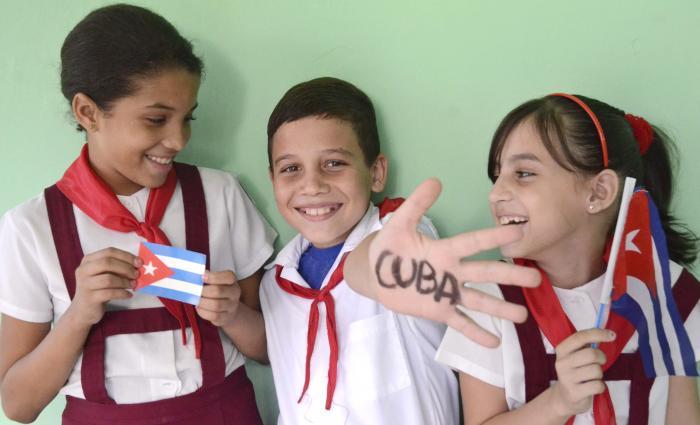Legislative bodies created over six decades, places children at the center of attention and guarantees their survival, development, protection and participation in society, due to which it has the Family, Labor, and Childhood and Youth codes, as well as a maternity law, among other provisions,
Several programs for the extensive use of television for educational purposes, the massive study of computing and the most complete coverage with fully-trained teachers, allow the full development of the underagers.
Cuba also has 440 special schools, with an enrollment of more than 56,000 students, which cover the educational needs of children with disabilities.
According to the vice president of the United Nations Committee on the Rights of the Child, Luis Ernesto Pedernera, Cuba’s work in protecting children is commendable and can be compared to first-world countries.
The expert pointed out in a meeting with representatives of the organizations of the Cuban civil society that the fact that the Cuban Constitution places the best interests of the child and progressive autonomy at its center is an important achievement, as was the approval of the Family Code.
In the gathering, Pedernera assured that Cuba is immersed in a very interesting process that began with the 2019 Constitution, which includes some axes of the Convention on the Rights of the Child.
He considered his visit to Cuba as a historical experience, since it is the first time that an expert from the Committee attends an academic activity (the 1st International Congress on Children and Adolescents) and has had the opportunity to talk with the authorities about the recommendations made.
jrr/llp/jf/evm









